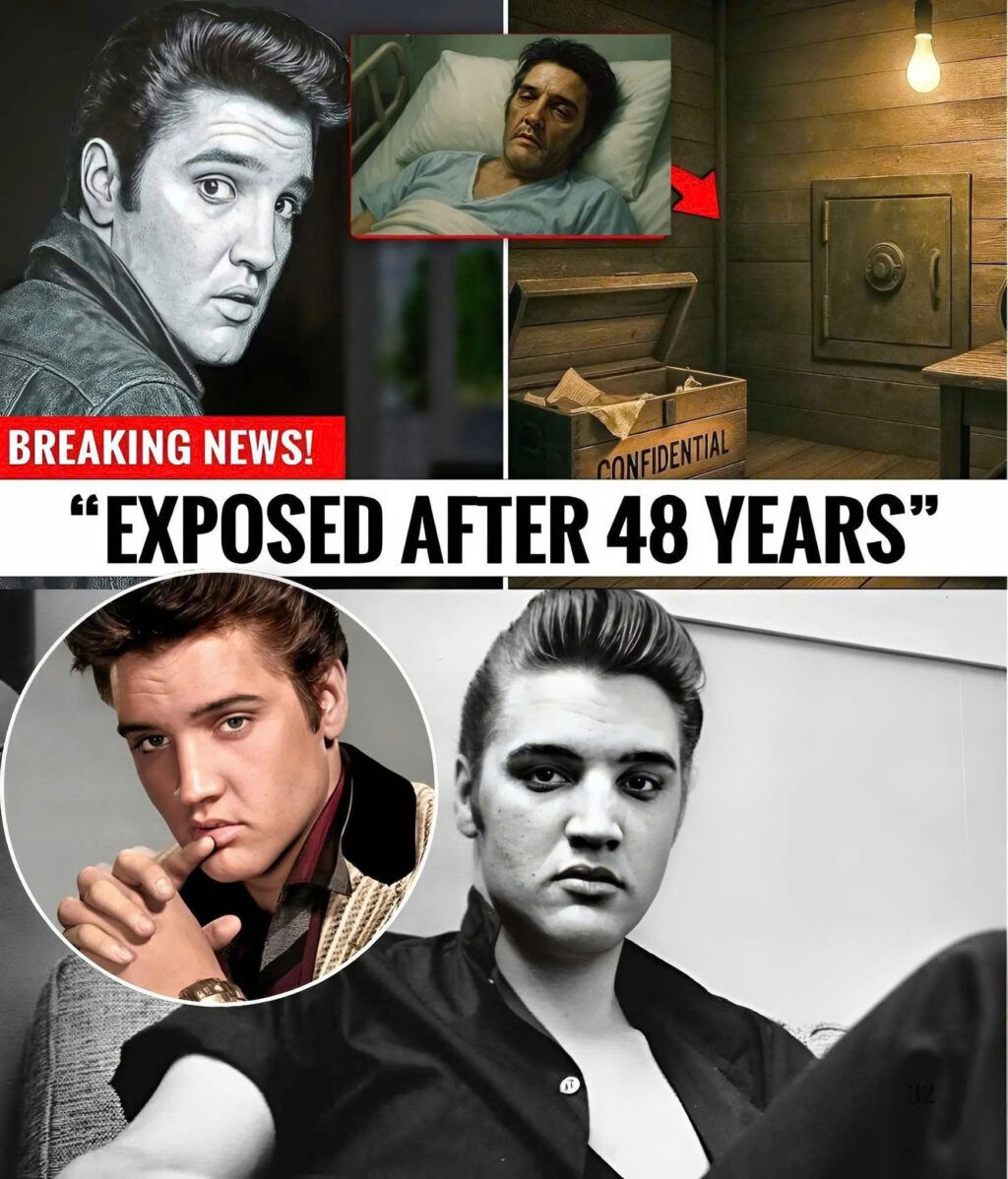
There’s a part of Elvis Presley’s life that even time hasn’t touched.
While millions have walked through Graceland’s velvet-draped halls and marveled at the King’s lavish lifestyle—from gold records to rhinestone jumpsuits—one door has remained shut. Not just to the public, but to nearly everyone, including presidents and celebrities alike.
And now, nearly 48 years after Elvis Presley’s sudden death, that mysterious upstairs of Graceland has stirred conversation once again—because someone finally opened the door.
The Forbidden Second Floor: Why No One Was Ever Allowed In
Graceland, in all its Southern Gothic glory, has become a living museum—an eternal tribute to a man who changed music forever. Yet what lies above the main floor has been the subject of decades-long speculation. The second floor of Graceland is not part of any tour. No photos exist. No security cameras stream from there.
Why?
Because that’s where Elvis died—in his private bathroom—and where his spirit, according to those closest to him, still lingers. It’s the only space in the mansion that remains exactly as it was on the morning of August 16, 1977. His bed is still unmade, his robe still draped over the chair, and his TV left paused on one of his favorite late-night talk shows.
For the Presley family, it was never about hiding secrets. It was about honoring what Elvis cherished most: solitude. That upstairs floor was his last true escape from the public eye. It’s where he read spiritual books, scribbled in notebooks, and listened to gospel music alone.
Best headphones deals
What Was Finally Discovered After 48 Years
Recently, a select group tied closely to the Graceland estate was given unprecedented access to the second floor—not for a tour, but for private documentation and preservation. What they found wasn’t scandalous. It wasn’t paranormal. It was… intimate.
A worn Bible with handwritten notes. A spiral-bound journal containing reflections on fame, loneliness, and the afterlife. A stack of unopened fan mail dated just days before his passing. Prescription bottles untouched on the counter. And one chilling detail: a cassette tape labeled “To Lisa—Daddy’s Last Song.”
The contents of that tape remain sealed—for now. But its very existence has ignited new questions. Was Elvis preparing to say goodbye? Or was he planning something only his daughter was meant to hear?
Why Even Nicolas Cage Stayed Silent
In the early 2000s, actor Nicolas Cage—who briefly married Lisa Marie Presley—was granted rare access to Graceland’s second floor. When asked in interviews about what he saw, he refused to elaborate. “It’s not mine to talk about,” he said.
He’s not the only one. A handful of maintenance workers and security staff over the decades have quietly come and gone, and all say the same thing: that whatever is upstairs isn’t just personal—it’s sacred.
The Elvis That Lived Upstairs Wasn’t a Superstar—He Was Just a Man
Beneath the rhinestones and the thunderous applause, Elvis was a man craving peace. Upstairs at Graceland, he wasn’t a performer. He was a father. A seeker. A recluse. And maybe even a man aware that his time was running out.
This space—this floor—was never about preserving celebrity. It was about preserving truth. And that truth wasn’t glamorous. It was raw, real, and human.
A Legacy Locked in Silence
In a digital age where everything is recorded, posted, and shared instantly, the fact that the Presley family has protected the upstairs of Graceland for nearly five decades is extraordinary. There are no photos. No leaked videos. No cash-grab tell-alls from inside those sacred rooms.
It is perhaps the last private space belonging to one of the most public figures in history.
And now, as Graceland prepares for its next chapter—amid legal battles and shifting ownership—the decision to open the attic and preserve what lies above may have been both emotional and necessary.
Final Thoughts: What We Think We Know About Elvis Is Only Half the Story
History books will tell you Elvis died in 1977. But the truth is, parts of him are still alive—tucked into old journals, faded photographs, and a recording tape marked with love.
Graceland’s attic wasn’t filled with conspiracies or ghosts. It was filled with memory, and maybe even a goodbye he was never able to speak out loud.
The upstairs remains off-limits to the public—but perhaps that’s the point. Some parts of a legend are too fragile to be put on display.
And as one insider put it after exiting that locked door for the last time:
“You don’t come down from there thinking of Elvis the icon… you come down remembering Elvis the man.”



